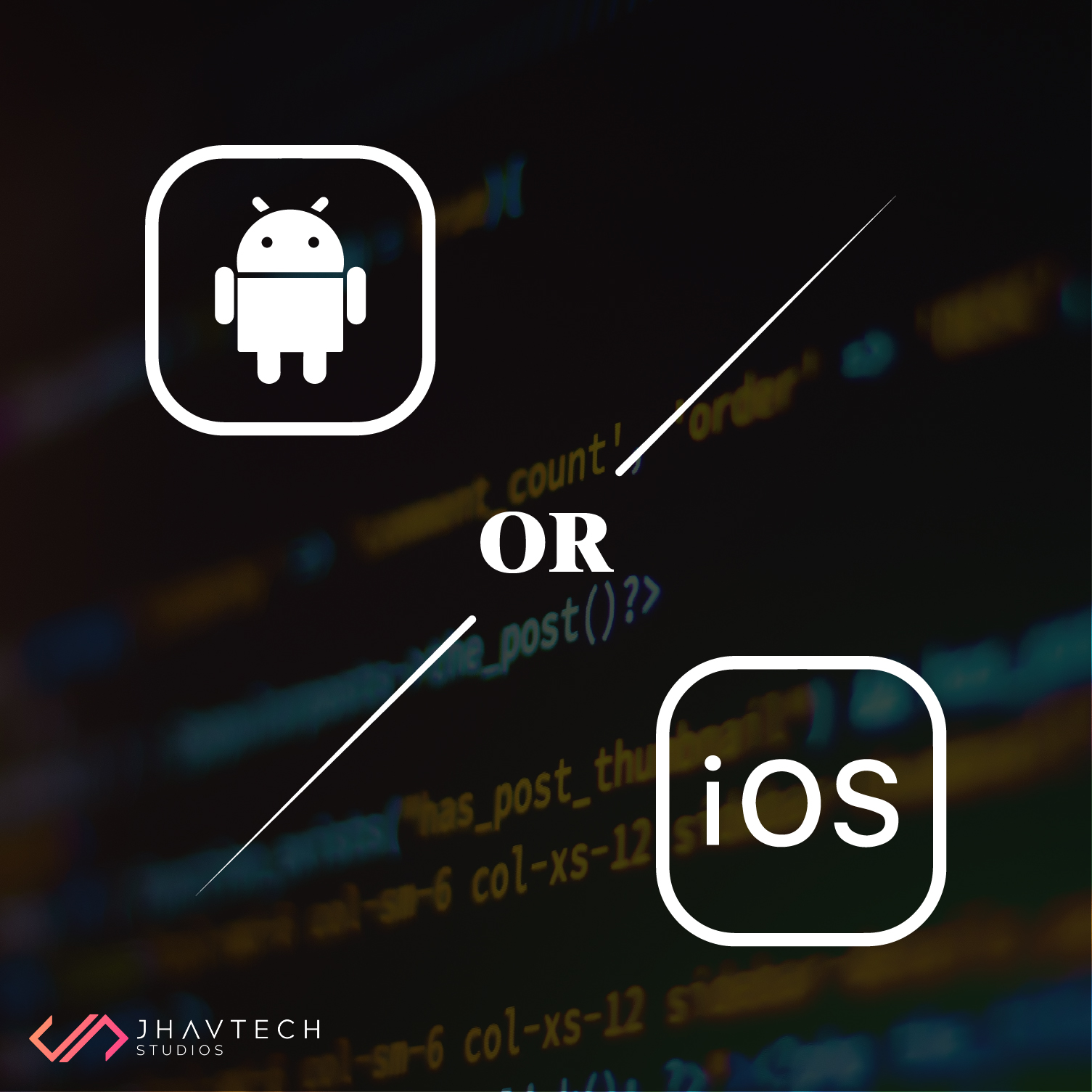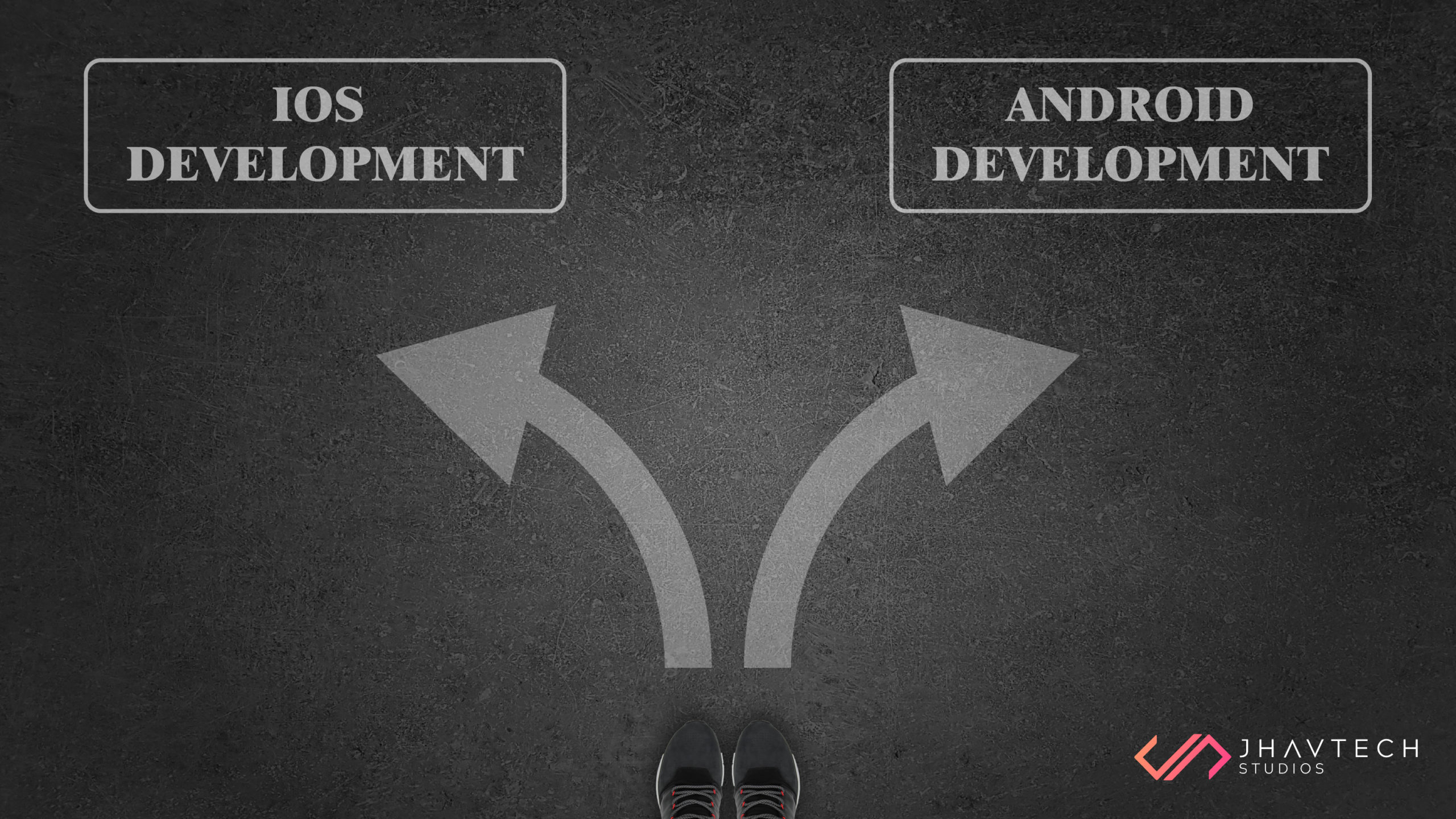iOS Vs Android Development: Which Do You Go For?


Mobile app development is one of the fastest growing sectors in software production. Since the surge in the number of mobile applications more than a decade ago when Apple launched the App Store, the demand for apps has seen a phenomenal rise.
With 230 billion global app downloads in 2021 alone, there is no denying that mobile apps have been ingrained into the fabric of modern day society. App development is at its peak, with studies showing that the average individual is spending roughly 2 hours and 51 minutes per day on his/her mobile phone. It is even projected that the number of mobile phone users will skyrocket to a staggering 7.33 billion by 2023.
The statistics are undeniable, no wonder businesses and organisations across the globe want to jump into the bandwagon. But designing and developing a successful mobile app calls for unique ideas, meticulous planning, and flawless execution.
Over the past few years, iOS vs Android development has dominated the operating system (OS) market. Android has the lion’s share at 68% while iOS holds about 30%. The rest are smaller operating systems like Windows, Sailfish, and Tizen.
With the aforementioned figures, you may be tempted to pick Android development, but market share percentage is not the only factor to consider. Note that iOS is dominating in the more developed nations, which translates to more potential profit. In addition, there are certain projects where it’s more advisable to exclusively build an iOS app, or to build simultaneously on both platforms.
For these reasons, there is no clear winner in the iOS vs Android development debate, and you must dig deeper into the pros and cons before making a final decision. In this article, we will highlight the perks and perils of both platforms and identify their major differences to help you make the right choice.
Pros of Developing for iOS
Better Performance. Mobile app development for iOS is in higher demand because such apps always live up to expectations and perform extremely well. This is no surprise as Apple has strict rules and high publishing standards. This means you can rest assured that when an app is published in the App Store, it is worthy of purchase. The apps are generally easy-to-use, fast, reliable and with only few bugs (if any) in the final build.
Sleek and Flawless UI/UX. Apple provides detailed guidelines for the design and development of the user interface (UI) for its apps. Some may find this restrictive, but such approach ensures an excellent user experience (UX).
Fast and Affordable Development. iOS is superior to Android in terms of keeping the development of your app on time and right on budget. Statistics show that as of September 2021, there were over 24,000 device models operating on Android. While you can limit your app from being installed in gadgets and devices that do not meet hardware requirements, it’s tough to test your application on each device that it will be installed in. This is not an issue with iOS apps since you only need to make it work in recent models of iPhones and iPads.
Cons of iOS Development
Like any other software, iOS has its drawbacks and limitations.
App Store Rigid Guidelines. Apple expects developers to strictly adhere to their interface guidelines, which make iOS apps look clean and sleek, but also sort of similar to each other. In addition, developers require software for native iOS app development. Such software like XCode only runs on Mac. Hence, in order to develop for iOS devices, you’ll need at least one other bit of Apple technology.
Stringent Publishing. The App Store is generally more demanding than Google Play Store. Even if your app didn’t violate any rules, the App Store can still reject it if it’s not useful or relevant to the end users. The app release process is likewise tougher and it typically takes a while for an app to get approved.
Lack of Customisation. Due to the standardisation guidelines, customising an app is an issue and a challenge. It is difficult to integrate some features if they entail interaction with third-party software. The lack of flexibility also affects the popularity of apps, as they must all adhere to design guidelines that make it difficult for an app to stand out.
Android Development
Since its official release in 2007, Android has emerged as the top mobile operating system. The main Android source code is known as Android Open Source Project, while the most common way of developing apps is by using the Android Studio IDE with Java programming and the Android SDK.
Pros of Developing for Android
Open System. Android is an open-source OS and its various versions are used in different devices, from smartphones to smart appliances. Because of its open-source nature, you can use Android at no cost. This explains why companies like Sony, LG and Samsung routinely use it for their smart electronics.
Flexibility and Customisation. Android offers a much less restricted environment than iOS. In this type of setting, developers can unleash their creativity to its fullest. As for distribution, the apps can run on any Android-powered device, so you are less likely to encounter hardware compatibility issues.
Android also provides for smoother development by relying on Java, which is a very versatile programming language that’s supported by Windows, Linux and Mac OS. This allows developers to design and build Android apps regardless of the operating system their device runs on.
Publishing the App. Publishing an app on Google Play Store is fast and straightforward. Once you upload the Android PacKage, it usually takes only a few hours before the app can be downloaded by users. Even if Google has become less lenient since 2020, the vast majority of Android apps that follow the company’s content policy easily get approved. Developers only need to pay a relatively low one-time registration fee of $25.
Fragmentation. There is a wide range of devices (i.e. different hardware) that can run with a responsive Android app. Being fragmented, you can seamlessly port the features of a certain device to an upgraded version.
Cons of Developing for Android
Cost. Developing an app for Android is usually more time-consuming. This means higher cost for both development and quality assurance. To complicate matters, Android users tend to favor free apps and spend less on in-app purchases.
According to a study conducted by Sensor Tower, the App Store generated $41.5 billion in consumer spending during the first half of 2021, while Google Play only raked in an estimated $23.4 billion during the same period.
Fragmentation. While we listed it as an advantage, fragmentation can also be a drawback. This is particularly true if you take into consideration all the different screen sizes, aspect ratios and resolutions that must work the way they are expected to after each update. You certainly don’t want the app showing to users in a way that’s not according to plan.
More Testing. The concept behind this is pretty much the same as fragmentation. Since a plethora of devices have different hardware and run on different Android versions, it’s difficult to test everything in a manner and at the speed that developers would want to. It is both time consuming and labor intensive.
Parting Words…
There is no definitive answer to the question of which operating system is better for mobile app development. You must understand what each platform has to offer: fast development speed and high ROI for iOS, flexibility and bigger audience for Android. If you are looking to build your very own app, it is imperative to work with a reliable iOS or Android app development company.
At Jhavtech Studios, we offer both iOS and Android app development services for various industries. We delve on the most critical features and deliver a highly viable MVP according to your specified timeframe and budget. To start a project, get in touch with us – we look forward to bringing your ideas to life! From design, development, testing, and support, we’ll help you turn your digital presence into a competitive advantage.

